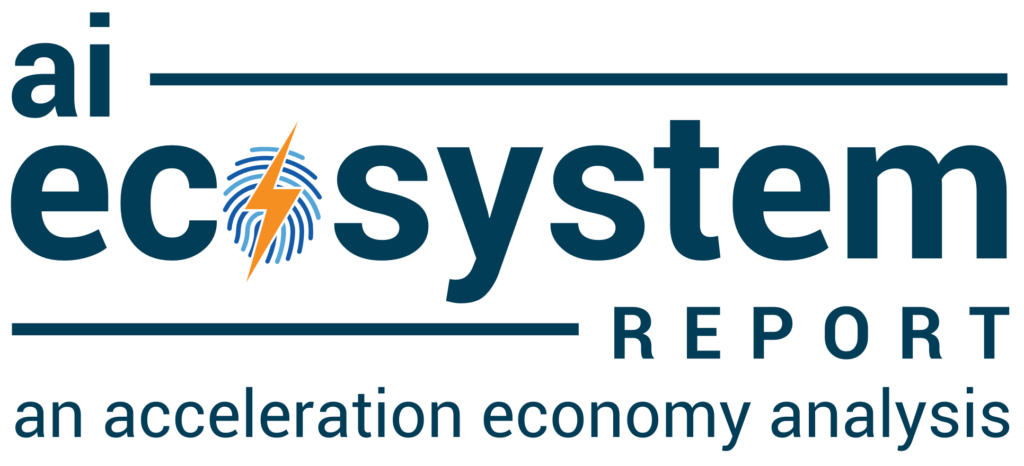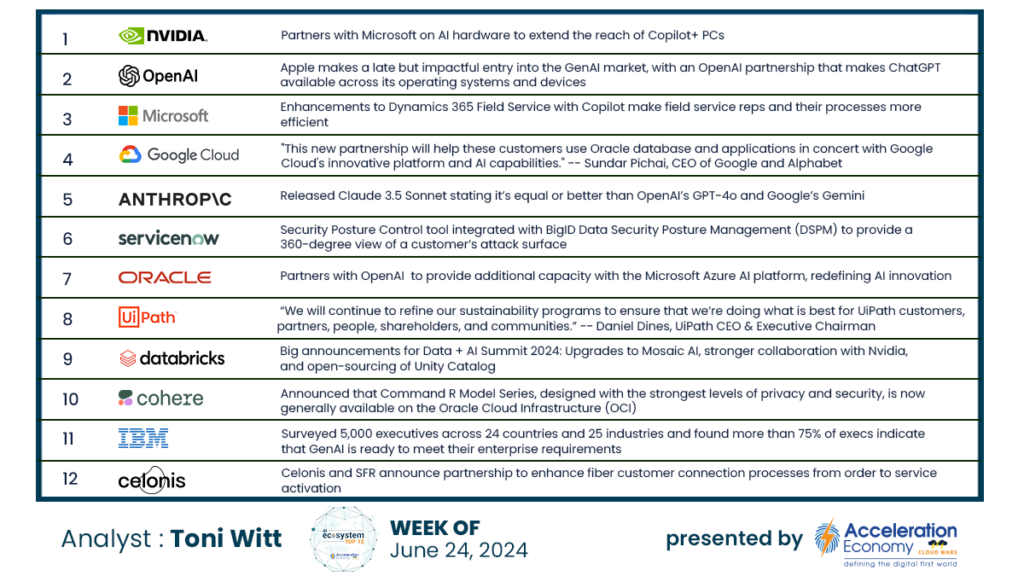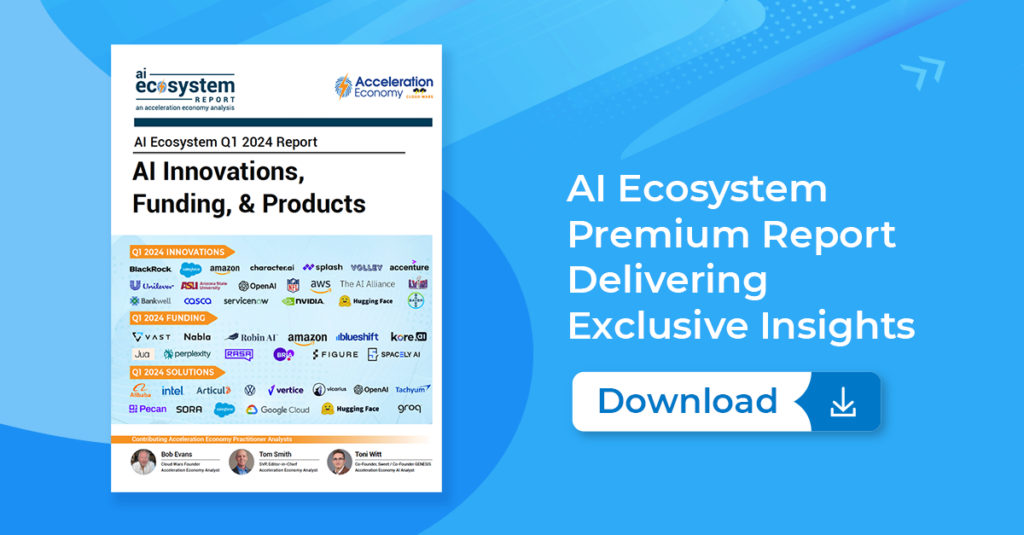
The C-suite is opening up a new seat at the table — for the CAIO.
The emergence of the Chief AI Officer role is not just a trend; it’s a strategic move reshaping the business technology job market.
According to LinkedIn, the number of companies with a CAIO, Head of AI, or equivalent position has more than tripled in the last five years, indicating the growing recognition of AI’s strategic business and technology importance.
Amplifying this trend, President Biden’s executive order last year, aimed at addressing the complexities and opportunities of AI, has set the stage for this surge. Federal agencies are seeking more than 400 heads of AI by the end of 2024 to meet these demands. To dive deeper, the Office of Management and Budget provides a comprehensive guide on hiring a Chief AI Officer and implementing this executive order, underlining the urgency and importance of this role.

However, the Chief AI Officer role is not confined to the public sector. AI executive leadership roles have become pervasive across industries, from financial services to healthcare to semiconductors.
These new chiefs are expected to significantly accelerate the pace and enhance the safety of AI adoption across their organizations. This is a necessity. A 2024 CEO study by Accenture reveals that only 27% of CEOs believe their organizations are adequately prepared to adopt GenAI. To put this into perspective, ChatGPT alone has amassed hundreds of millions of downloads.
When to Bring in a Chief AI Officer
Does your company need a Chief AI Officer right now? Or should you add AI talent such as data scientists, machine learning engineers, and pros trained in AI applications and language models? This is the debate raging in board and leadership sessions everywhere.
Most agree that institutional knowledge of AI and AI development is insufficient today. Given the prevalence, potential upside, and corollary risk, it’s important to have an executive at the leadership level who understands, plans, and oversees the execution of AI strategy.
Here are three critical criteria to consider when hiring an AI executive:
- The company’s AI readiness and appetite for AI deployment
- The company’s size and complexity, including where AI is and will be applied
- The role AI plays in your industry and the urgency to act
Larger and AI-specialty companies need a leader with the vision — and the responsibility — to manage up, laterally, and down through the organization.
While the title CAIO itself is buzzy right now, that doesn’t mean every organization needs someone elevated to that C-level role.
Sal DiFranco, managing partner of DHR Global’s advanced technology practice, said there’s more talk about AI directors and vice presidents. He likened it to a decade ago when clients sought to hire IoT experts at those levels. These pros eventually went on to report to the CIO or CTO.
Responsibilities of an AI Chief
Broadly speaking, the role entails bridging the gap between the crucial micro details of working with AI and the macro strategy of the larger company. It’s become a far more common job recently as businesses seek guidance on how to use AI — a relatively new technology — to save time and boost productivity.
The role of the CAIO can vary greatly. Most early examples focus on developing and working across departments and teams to implement AI responsibly and urgently. The cross-functional aspect of the role is critical because of the far-reaching impact of AI models, applications, and use cases being considered, as well as unknown governance requirements.
Scanning LinkedIn job listings, here is the consensus on key responsibilities of a CAIO:
- Lead development and oversight of AI strategy and implementation across the organization
- Develop an internal education program to ensure proper training and keep leaders abreast of the rapidly changing AI market, as well as opportunities and pitfalls
- Craft and oversee AI policy, governance, and guidelines
- Hire and/or lead a technology team

The AI Ecosystem Q1 2024 Report compiles the innovations, funding, and products highlighted in AI Ecosystem Reports from the first quarter of 2024. Download now for perspectives on the companies, investments, innovations, and solutions shaping the future of AI.
Essential Skills of a Chief AI Officer
Since executive-level AI pros are still relatively new, finding the right person for these jobs, or knowing what they’ll do, will take time. That’s why it’s so important that they have the right skills to execute whatever those goals may be.
A deep understanding of AI and technology is table stakes. However, this pro can’t just be a technical expert. Ideally, he or she combines AI technology competency, strategic vision, and executive-level leadership.
“Historically, jobs were defined by titles. But the smart companies are realizing they need to start defining the job as a collection of skills and tasks, not simply titles,” Ryan Roslansky, CEO of LinkedIn, said at Talent Connect last year. “Then start thinking about how those tasks must change as AI advances and what new skills we require to succeed.”
C-Suite executives are looking for candidates who are experts in AI, of course, but also in machine learning, deep learning, and natural language processing. Depending on the company, the CAIO will likely need industry expertise, such as robotics in manufacturing or silicon in semiconductors.
Softer skills will also be important, as AI is changing daily and its impact on employees is yet to be determined. CAIOs must know how to wield influence working across multiple stakeholders and departments and know their way around an organization to prioritize multiple company needs and stakeholder inputs. Lastly, the AI chief must be able to explain technical topics to a non-tech audience to translate business needs into technology and to communicate what’s possible and what’s real.
Finding a Chief AI Officer
Hiring a Chief AI officer won’t be easy. Not only is the CAIO a new position, but a limited number of leaders have the AI depth to drive the business and technology strategy and execution. One HR recruiter in AI shared, “AI expertise is essential. But you have to look for…somebody who has proven she or he has previously led successful new business and tech initiatives.”
One thing is clear: The AI race is on and customers, board members, employees, and investors all have elevated expectations for AI’s business impact. No business or technology leader wants to be left behind, whether your company hires a CAIO now or not.
Ask Cloud Wars AI Agent about this analysis










